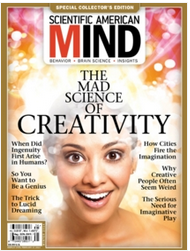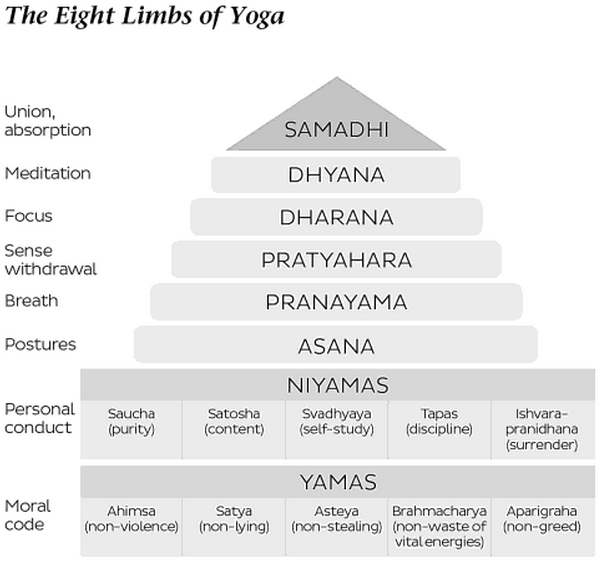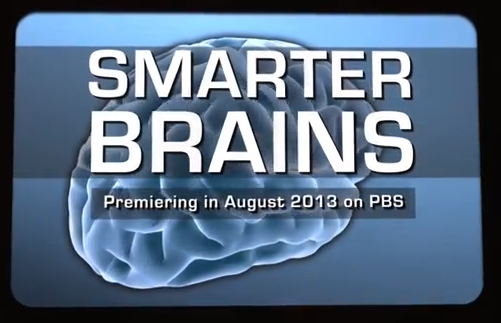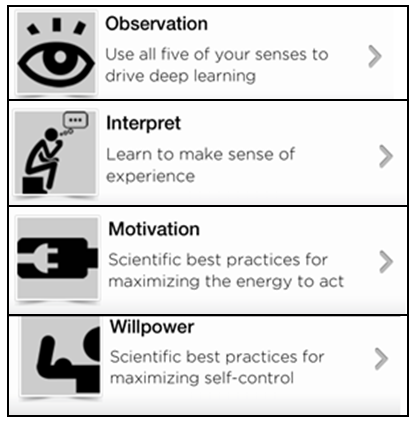Categories: Books, Cognitive Development Tags:
Your Next Brain on Yoga?
There have been a handful of studies that suggest Yoga exercise and meditative practices can improve cognitive performance and brain function in adults and children. Just the kind of stuff we report on in the Next Brain Blog.
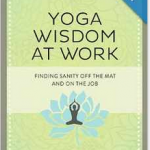 One challenge in using Yoga as a cognitive development technique is that most approaches appear to be limited to what you can do on an exercise mat or in quite isolation. That’s one reason the book Yoga Wisdom at Work caught my attention. The authors, Maren and Jamie Showkier, demonstrate through stories and practical tips ways you can apply Yoga “off the mat and on the job”.
One challenge in using Yoga as a cognitive development technique is that most approaches appear to be limited to what you can do on an exercise mat or in quite isolation. That’s one reason the book Yoga Wisdom at Work caught my attention. The authors, Maren and Jamie Showkier, demonstrate through stories and practical tips ways you can apply Yoga “off the mat and on the job”.
While they include material on Yoga postures, exercise and meditation, they also cover other fundamental aspects of Yoga including for example, moral code and conduct. In total there are eight areas or limbs of Yoga that are presented providing a practical and comprehensive approach.
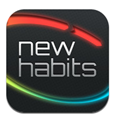 I’ve partnered with Maren and Jamie to convert the how-to content in their book into a deck of knowledge cards that can be used to practice Yoga wisdom one small-step at a time on a daily basis. You can access the results on NewHabits a free iPhone and iPad App. NewHabits comes with two free decks of knowledge cards (motivation and observation) and the Yoga deck is $0.99. Additional decks of knowledge cards covering all eight limbs of Yoga are in the works.
I’ve partnered with Maren and Jamie to convert the how-to content in their book into a deck of knowledge cards that can be used to practice Yoga wisdom one small-step at a time on a daily basis. You can access the results on NewHabits a free iPhone and iPad App. NewHabits comes with two free decks of knowledge cards (motivation and observation) and the Yoga deck is $0.99. Additional decks of knowledge cards covering all eight limbs of Yoga are in the works.
I am interested to hear from readers that use Yoga to improve their cognitive abilities. What technique or limbs do you use?
Categories: Ancient Ways, Cognitive Development, Software Tags:
Can Mother’s Exercise Boost Baby’s Brain Maturity?
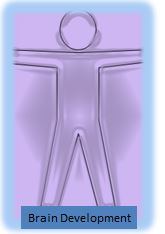 I regularly get emails from parents asking what they can do to help improve their kid’s brain function and cognitive performance. I offer plenty of tips in the Next Brain blog but am always on the look out for more.
I regularly get emails from parents asking what they can do to help improve their kid’s brain function and cognitive performance. I offer plenty of tips in the Next Brain blog but am always on the look out for more.
For example the New York Times has an interesting article about a research study that suggests as little as one-hour of exercise per week while pregnant can have a pronounced impact on how a new born’s brain processes stimulus.
“their brains were more mature,” Ms. Labonte-LeMoyne said.”
The study cautions that it is not clear if other factors are at play or if the relative advantage will persist as the child develops. The researcher conclude:
“But for now, the lesson is clear. “If a woman can be physically active during her pregnancy, she may give her unborn child an advantage, in terms of brain development,” Ms. Labonte-LeMoyne said. And the commitment required can be slight.”
I am interested to hear about other research studies that examine the impact of exercise (or lack of it) by a mother on her baby’s brain function and cognitive performance.
Categories: Child, Cognitive Development, Parent Tags:
Just How Smart are You?
Mensa is a well-known organization for highly intelligent people. To get in you need to score in the top 2% of a standardized intelligence test. There are about 57,000 members in the US. I hope they are reading the Next Brain Blog!
 Each year the organization runs a national games competition called Mind Games. It is clear they are big on games as a way to test and boost intelligence. Check out their all ages Game Room. If you want to see how you would stack up, try out this 9-question sample (including answers), offered by Scientific American.
Each year the organization runs a national games competition called Mind Games. It is clear they are big on games as a way to test and boost intelligence. Check out their all ages Game Room. If you want to see how you would stack up, try out this 9-question sample (including answers), offered by Scientific American.
I am interested to hear from readers that are Mensa members. What tips can you share for improving brain function and cognitive performance?
Categories: Cognitive Development Tags: games
Brain Myths about Learning and Teaching
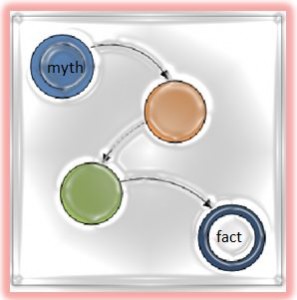 In the Next Brain Blog one of our goals is to help you apply the latest findings from neuroscience to improve or protect how well you think, learn, solve problems and make decisions on a daily basis. We want to use science to boost brain function and cognitive performance in very practical ways. One way to do that is to surface and debunk myths about the brain. So I am always on the lookout for scientific studies into myths about how our brains work.
In the Next Brain Blog one of our goals is to help you apply the latest findings from neuroscience to improve or protect how well you think, learn, solve problems and make decisions on a daily basis. We want to use science to boost brain function and cognitive performance in very practical ways. One way to do that is to surface and debunk myths about the brain. So I am always on the lookout for scientific studies into myths about how our brains work.
For example, a study published in Frontiers in Psychology examined how 242 teachers in Europe responded to common myths about how the brain works in education. The findings were striking. For example, 82% of the educators believe the myth of learning styles or:
“Individuals learn better when they receive information in their preferred learning style (e.g., auditory, visual, kinesthetic)”
This means even professional can fall victim to brain myths. Check out the myths below and see how they stack up to your beliefs. This is direct excerpt from the appendix of the paper:
- “Children must acquire their native language before a second language is learned. If they do not do so neither language will be fully acquired
- If pupils do not drink sufficient amounts of water (=6–8 glasses a day) their brains shrink
- It has been scientifically proven that fatty acid supplements (omega-3 and omega-6) have a positive effect on academic achievement
- We only use 10% of our brain
- Differences in hemispheric dominance (left brain, right brain) can help explain individual differences amongst learners
- The brains of boys and girls develop at the same rate
- Brain development has finished by the time children reach secondary school
- There are critical periods in childhood after which certain things can no longer be learned
- Individuals learn better when they receive information in their preferred learning style (e.g., auditory, visual, kinesthetic)
- Mental capacity is hereditary and cannot be changed by the environment or experience
- Environments that are rich in stimulus improve the brains of pre-school children
- Children are less attentive after consuming sugary drinks and/or snacks
- Exercises that rehearse co-ordination of motor-perception skills can improve literacy skills
- Learning problems associated with developmental differences in brain function cannot be remediated by education
- Short bouts of co-ordination exercises can improve integration of left and right hemispheric brain function
- When we sleep, the brain shuts down.”
Interested to hear from readers that have discovered and debunked brain myths. How did going from myth to fact help you improve your cognitive performance?
Categories: Cognitive Development Tags:
Cognitive Vitality As We Get Older
 You will often hear that staying “mentally active” is important for maintaining a brain health as you age. A variation on the use it or lose it theme. But what exactly does being mentally active mean in this sense? Is reading a book OK and watching an action movie not?
You will often hear that staying “mentally active” is important for maintaining a brain health as you age. A variation on the use it or lose it theme. But what exactly does being mentally active mean in this sense? Is reading a book OK and watching an action movie not?
A new study tackles this question and the findings are interesting. Turns out activities such as – playing a game, listening to classical music or solving cross word puzzles – “probably won’t bring noticeable benefits to an aging mind”. That is an interesting claim as these types are activities are frequently sited as good examples of what should provide benefit.
The key is to engage in mental activities outside your comfort zone that force you to learn new skills. For example, learning photography or quilting. The general point is:
“It seems it is not enough just to get out and do something — it is important to get out and do something that is unfamiliar and mentally challenging, and that provides broad stimulation mentally and socially,…”
Doing mental activities that we have already mastered, while still worthwhile, may not be providing the brain boost and protection we need as we age.
Categories: Cognitive Decline, Cognitive Development, Lifestyle, Memory and Learning, Older Adult Tags:
14 Tasty Recipes With Brain Enhancing Ingredients
 The AARP has an excellent article on brain boosting foods. It covers 14 recipes ranging from pecan cranberry and orange muffins to an asparagus, mushroom and ham quiche with a potato crust. You get a full recipe for each dish as well as a brief explanation of the brain enhancing ingredients.
The AARP has an excellent article on brain boosting foods. It covers 14 recipes ranging from pecan cranberry and orange muffins to an asparagus, mushroom and ham quiche with a potato crust. You get a full recipe for each dish as well as a brief explanation of the brain enhancing ingredients.
The information comes directly from the book, ThinkFood: Brain Healthy Recipes. The AARP worked with Posit Science to collect ideas from 50 renown food bloggers. Unfortunately, the book is currently unavailable. I am interested to hear from readers that have a copy and want to share their favorite recipe.
Categories: Books, Cognitive Development, Diet Tags:
Categories: Cognitive Development, Diet, IQ and EQ, Lifestyle, Training Tags:
25 Proven Ways to Develop Willpower
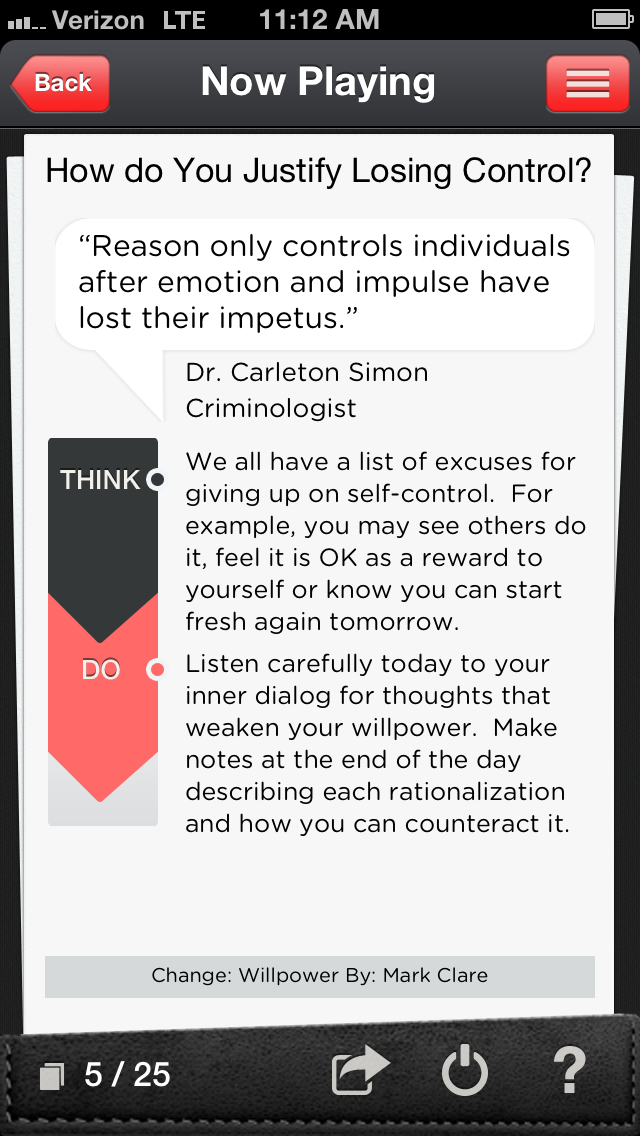 Willpower is the ability to carry out plans and reach goals especially when obstacles challenge us. It is what we use to resist temptation and keep going when we want to stop. Motivation, self-control, determination and grit all rolled up into our force of will.
Willpower is the ability to carry out plans and reach goals especially when obstacles challenge us. It is what we use to resist temptation and keep going when we want to stop. Motivation, self-control, determination and grit all rolled up into our force of will.
The topic of willpower is getting a lot of attention these days. A few examples:
- Akst, D. (2011). We Have Met the Enemy: Self-Control in an Age of Excess
- Baumeister, R. and Tierney, J. (2011). Willpower: Rediscovering the Greatest Human Strength
- McGongal, K. (2011). The Willpower Instinct: How Self-Control Works, Why It Matters, and What You Can Do To Get More of It
Some researchers argue that willpower is like a muscle. If we push too hard we become fatigued and can fail. On the other hand, if we train we can become very strong and develop endurance. But what techniques should we use to train?
To guide my training efforts I have reviewed the research and compiled 25 techniques that are practical enough to use in an everyday setting. To keep things simple I’ve documented each technique on a knowledge card that takes only a few minutes to use. Check out the example card to the right.
You can access the techniques in NewHabits a free iPhone and iPad app. Look in the store for the willpower deck. In the morning I quickly scan the deck and pick a card I want to play. With each play I strengthen my willpower muscle. It is easy to share the cards with friends through email, Facebook or Twitter.
Give the App and try and share your cards with others. I would like to hear from readers about how well the cards work and what other cards should be added.
Categories: Books, Cognitive Development, Mental Focus, Software, Training Tags:
Can We Get Better at Learning From Experience?
We learn most things from experience. Learning how to ride a bike, solve algebraic equations, cook a good meal, read a book or get along with a difficult neighbor are just a few examples. The learning from experience process is well understood. It is conceptually simple but error prone in practice.
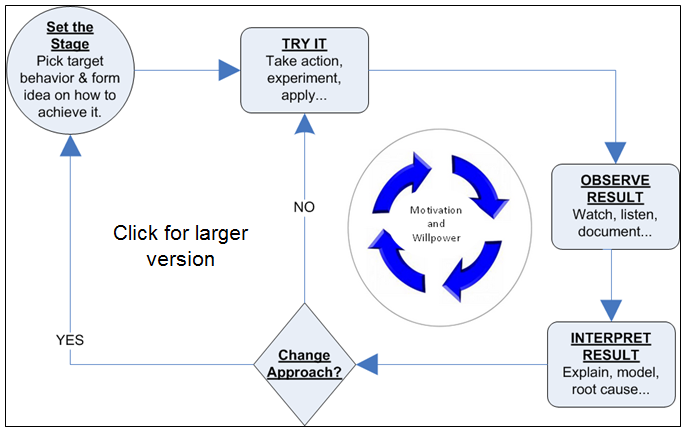 We set the stage by deciding what we are trying to learn and selecting a new behavior to try. We try the new behavior, observe the results, interpret the results and decide if we need to change our approach or stay the course. This process is repeated until we reach our goal or give up.
We set the stage by deciding what we are trying to learn and selecting a new behavior to try. We try the new behavior, observe the results, interpret the results and decide if we need to change our approach or stay the course. This process is repeated until we reach our goal or give up.
Of course it takes motivation to get this effort started and willpower to keep it going. Learning something new from experience takes diligence and usually involves some physical, emotional or reputational risks. Remember falling off your bike and the worry of reading poorly out loud as a grade school student?
Given the fundamental role learning from experience plays in acquiring new skills and changing behaviors, getting better at would have a significant impact on our overall cognitive performance. But can we really get better at it?
Fortunately, the answer is yes but we need to approach it one-step at a time. We should focus on improving our observation skills, interpretation skills or our capacity for self-control. Improvement in any one of these areas should translate into faster and deeper learning from experience.
You can use NewHabits, the free iPhone and iPad App to improve your ability to learn from experience. The App includes the following decks of knowledge cards:
Each deck includes 25 proven practices for getting better at one of the steps in learning from experience. You can play a card daily or every few days from your mobile device. Cards are designed to fit into your daily work or home routine and takes just  minutes to play. Each card is one small improvement step but the effects accumulate over time into significant new competencies and habits.
minutes to play. Each card is one small improvement step but the effects accumulate over time into significant new competencies and habits.
Download NewHabits and give some cards a try. Both the motivation and observation decks are free. The other decks are $0.99 or $1.99 but you get 3 sample cards for free.
Categories: Cognitive Development, Problem Solving, Software Tags: experiential learning

